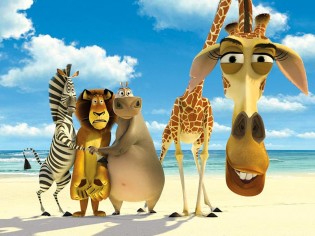 Like many things in life, the island of Madagascar is a mystery. A mini continent off the southeast coast of Africa, it features all kinds of crazy animals that shouldn’t be there.
Like many things in life, the island of Madagascar is a mystery. A mini continent off the southeast coast of Africa, it features all kinds of crazy animals that shouldn’t be there.
How did they get there?
Since there’s no evidence of a land bridge, scientific consensus says that animals from Africa suddenly got the urge to hit the open seas on self-made rafts and hope for the best, even though currents and prevailing winds blow away from the island.
I imagine the sporadic migration of seafaring land animals went something like this:
Continue reading…
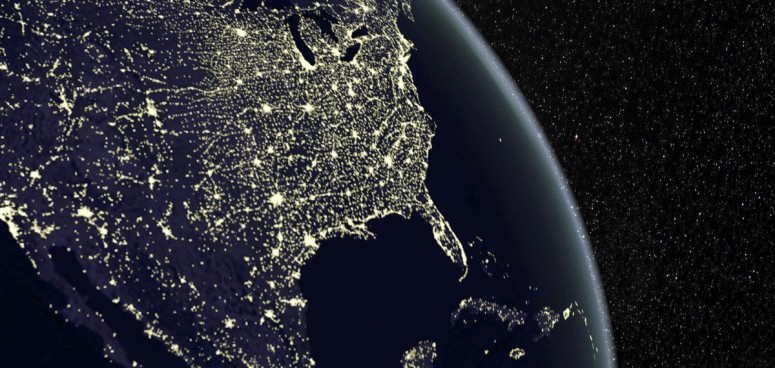
I recently finished A Short History of Nearly Everything by Bill Bryson. From a single book I’ve never learned so much and so little at the same time. I’ve also never read a more absorbing science book. Whereas I usually highlight a few passages from each book, I highlighted more than two dozen parts of this book upon completion — it covers that much ground. Continue reading…
Below is an edited summary of Eric Barker’s excellent list written for TIME Magazine:
 Get happy yourself. How happy you are dramatically affects how happy and successful your kids are. So plan time each week to nurture your own relationships and hobbies.
Get happy yourself. How happy you are dramatically affects how happy and successful your kids are. So plan time each week to nurture your own relationships and hobbies.- Teach kids to build relationships. Encourage them to invest in relationships and perform small acts of kindness to build empathy.
- Expect effort, not perfection. Banging the achievement drum messes kids up. The research is very consistent: praise effort, not natural ability. Continue reading…
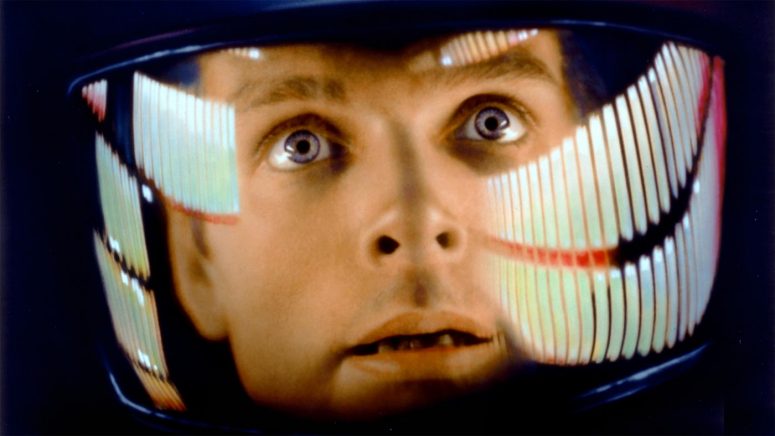
Courtesy MGM
Here’s a great quote from Cal physicist Richard Muller on the scientific method: “I see the difference between a scientist and a non-scientist in a simple way:
- A non-scientist is easily fooled and particularly vulnerable to self-deception.
- A scientist is easily fooled and particularly vulnerable to self-deception… and knows it.”
If you avoid distinguishing beliefs and bias from knowledge, you’re not a scientist. If you overstate the truth (even for the greater good), you’re also not a scientist.
True science demands objectivity, guts, free speech, vulnerability, and lots of “we’re still not sure but let’s keep checking.”
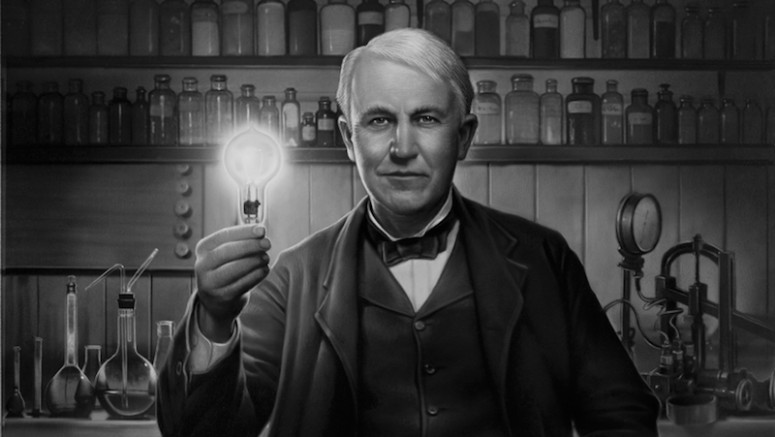
courtesy image
I recently finished Highbrow’s excellent 10-day course on inventions that changed the world.
In keeping score, half of the cited inventions quickened the sharing of information (writing, printing press, telephone, personal computer, internet). A third hastened our transportation (steam engine, automobile, airplanes). One marginalizes or maximizes physical dominance, depending on who owns more of it (gunpowder). And the last one lengthens our days (light bulb).
Interestingly, every one of these inventions involve some element of speed. The speed of a bullet. The speed of light. The speed of travel. The speed of knowledge. That’s why the world moves at an increasing rate. Our greatest inventions all involve speed.
Even this century’s greatest inventions largely involve speed. How fast you can get new or old music to your ears (iTunes, Spotify). How fast you can get answers to questions (Google). How fast you can connect with friends and family (Facebook, SMS). And how fast you can see the latest cat videos (YouTube).
Of course, many of these inventions involve size, frequency, and power. But when it comes to bigger, stronger, better, and faster—always bet on faster. It’s the future. And it’s likely what the “next big thing” will do more than others.
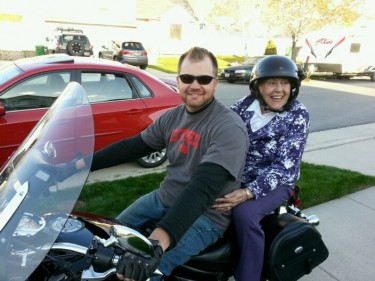
My wife’s grandmother, Beverly Ridd, was forever young
You wanna know what scares me most about getting old? Becoming calloused, jaded, and crotchety.
To counter that, I try to see the good in the world, surround myself with positive people, recognize the value of younger generations (as opposed to bemoaning their shortcomings), and do things that make me feel young again.
To help with the latter, TIME recently compiled a bunch of anti-aging activities backed by science. Here are a few that stood out: Continue reading…
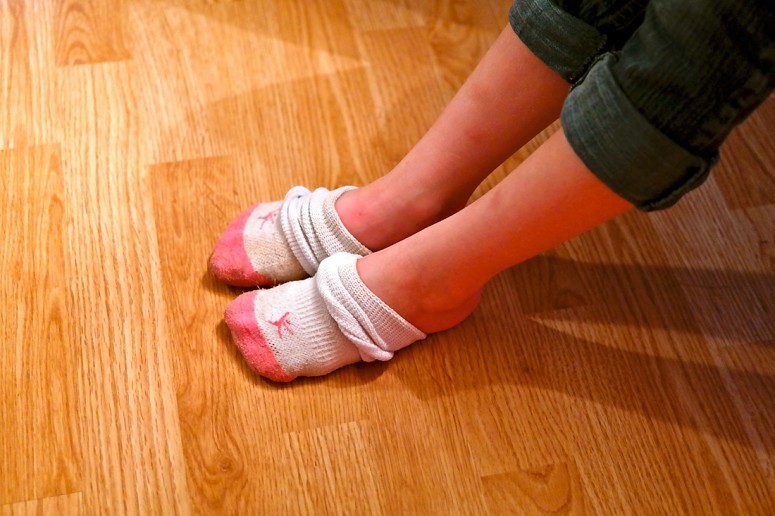
Blake Snow
See how my daughter is wearing her socks? I’m the only other person I know that does that, particularly if my ankles get hot.
Your ankles get hot? Yeah, my ankles get hot.
The complexing thing about this behavior, however, is that I haven’t “half socked” in years, certainly not since my daughter was old enough to notice. “Where did you learn to do that??!!” I asked in amazement the first time I witnessed her doing it. “I don’t know,” she shrugged. “Why?” I followed up. “Because my feet were hot.”
Maybe my daughter did observe me doing it and followed suit. Maybe she saw some other weirdo do it and mimicked them. I don’t doubt other explanations.
But maybe, just maybe, my daughter did it because her genetics told her to. Maybe, just maybe, human offspring remember select quirks that having nothing to do with evolution and everything to do with social continuity.
As a father, it was an exhilarating connection that I imagine gets better with age.
[youtube]http://www.youtube.com/watch?v=9D05ej8u-gU[/youtube]
Not only that, but it makes me want to roast marshmellows around a fire and sing Cumbauya with believers and non-believers alike. Either way, I like watching Neil Tyson on PBS Nova. But I really like him after hearing this wonderful answer put to music and film.
That said, I still think modern NASA is a dinosaur. It’s the equivalent of thinking the Internet still needs a government agency like ARPANET to perpetuate great things.
It doesn’t, although I believe in NASA, ARPANET and similar “start up” public technologies to get the ball rolling, since the private sector would likely never incur the initial hard costs to get these kinds of things going.
So thanks government. But please step aside once you’ve paved the way — we’ll take it from here. (That last line basically sums up most of my political thinking).
A three year examination of what happens when we die, conducted by a doctor who wrote a book on the subject.
The thesis found that phenomena occur after we die, such as the mind retaining verified memories for prolonged periods of time, even after the brain stopped receiving blood.
Findings should be fun.
The May issue of Wired Magazine has a fascinated piece on injectable vasectomies that can be reversed with a follow-up shot. The procedure, dubbed by Wired as “the biggest advance in male birth control since the condom,” is flawless so far in clinical trials and dirt cheap to administer. Cool.
But I resent the article’s assertion that if successful, the procedure would “increase the chance” of humanity escaping poverty (p. 171). People aren’t poor because they have a lot of kids. They’re poor because they’re oppressed, complacent, or both. Offspring have nothing to do with personal wealth. (At least mine don’t, and I’m a freakin’ thousandaire!)
Of course, if you’re an absent parent and express your “love” in the form of material gifts, than yes—parenting children can be expensive. But otherwise, children have less impact than you think when it comes to a sinking or swimming family.
The temperature of the Earth’s surface is uncharacteristically rising. That’s a measurable fact. What’s unclear is the cause of the change: Stinky humans who are skilled polluters… or Mother Nature spiking the climate like she’s done before (the Ice Age, the Little Ice Age, etc)?
There are two groups behind two popular theses. The first group, whom I will call “believers,” vigorously accept that humans undeniably cause climate change. They are thereby antsy to implement an immediate solution, least they be burned by planetary hell fire at some future date. The second group, whom I will call “atheists,” believe in no such thing, arguing that “intervention” is a farce, and we are just another brick on the wall. In their disbelief, they don’t want to prove or confide in anything. (My metaphor has range—not to mention irony, no?)
Oddly enough, both sides treat their argument as scientific fact—like the law of gravity—while arrogantly ridiculing the other side, quite unfairly at times. It’s a major turn off. That said, as a global warming “agnostic,” I’m ready to become either “a believer” or “an atheist.” I’m just hoping someone can answer the following eight questions first. Continue reading…
 Like many things in life, the island of Madagascar is a mystery. A mini continent off the southeast coast of Africa, it features all kinds of crazy animals that shouldn’t be there.
Like many things in life, the island of Madagascar is a mystery. A mini continent off the southeast coast of Africa, it features all kinds of crazy animals that shouldn’t be there.

 Get happy yourself. How happy you are dramatically affects how happy and successful your kids are. So plan time each week to nurture your own relationships and hobbies.
Get happy yourself. How happy you are dramatically affects how happy and successful your kids are. So plan time each week to nurture your own relationships and hobbies.


